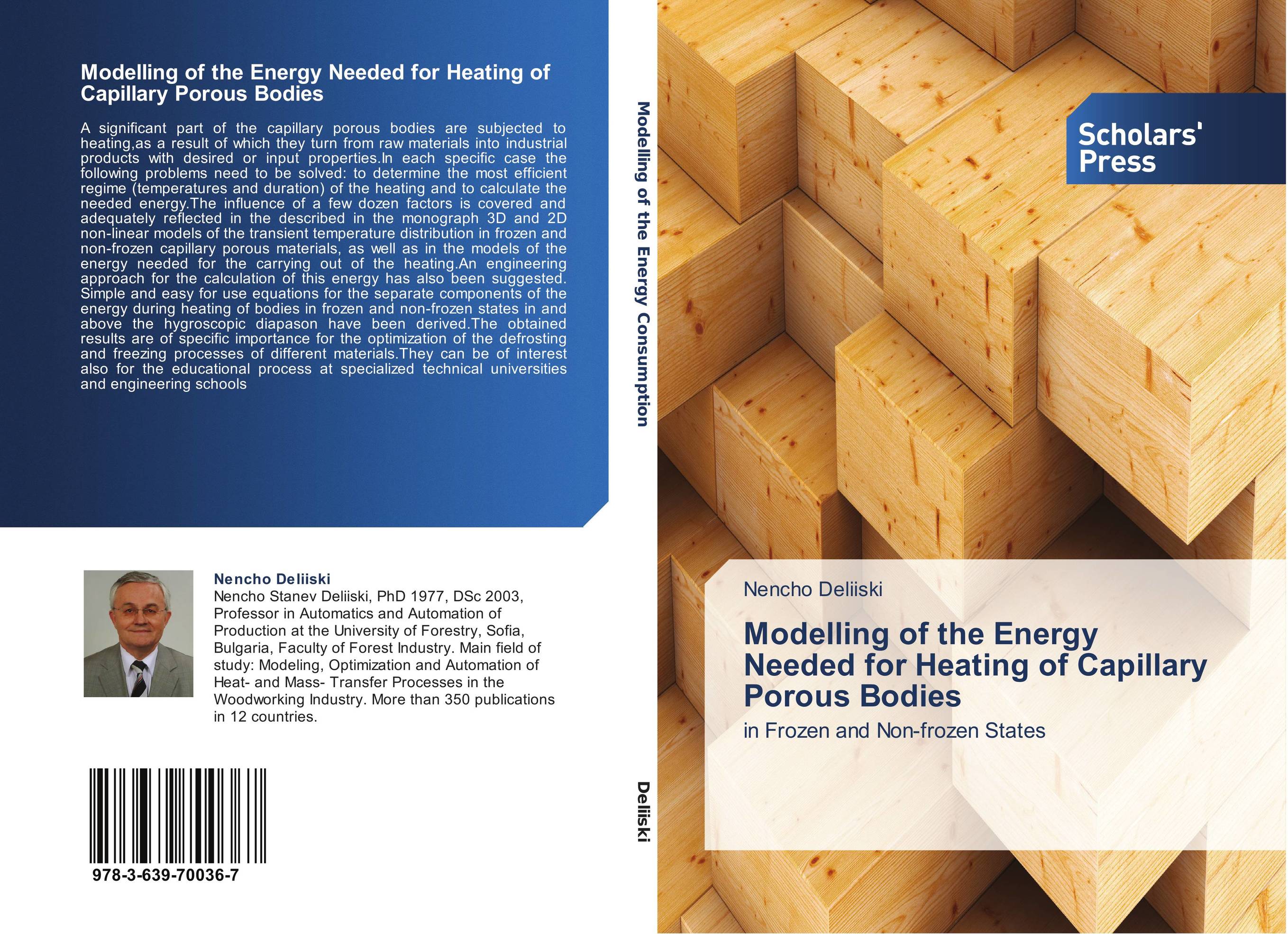| Поиск по каталогу |
|
(строгое соответствие)
|
- Профессиональная
- Научно-популярная
- Художественная
- Публицистика
- Детская
- Искусство
- Хобби, семья, дом
- Спорт
- Путеводители
- Блокноты, тетради, открытки
Modelling of the Energy Needed for Heating of Capillary Porous Bodies. In Frozen and Non-frozen States

В наличии
| Местонахождение: Алматы | Состояние экземпляра: новый |

Бумажная
версия
версия
Автор: Nencho Deliiski
ISBN: 9783639700367
Год издания: 2013
Формат книги: 60×90/16 (145×215 мм)
Количество страниц: 116
Издательство: Scholars' Press
Цена: 24714 тг
Положить в корзину
| Способы доставки в город Алматы * комплектация (срок до отгрузки) не более 2 рабочих дней |
| Самовывоз из города Алматы (пункты самовывоза партнёра CDEK) |
| Курьерская доставка CDEK из города Москва |
| Доставка Почтой России из города Москва |
Аннотация: A significant part of the capillary porous bodies are subjected to heating,as a result of which they turn from raw materials into industrial products with desired or input properties.In each specific case the following problems need to be solved: to determine the most efficient regime (temperatures and duration) of the heating and to calculate the needed energy.The influence of a few dozen factors is covered and adequately reflected in the described in the monograph 3D and 2D non-linear models of the transient temperature distribution in frozen and non-frozen capillary porous materials, as well as in the models of the energy needed for the carrying out of the heating.An engineering approach for the calculation of this energy has also been suggested. Simple and easy for use equations for the separate components of the energy during heating of bodies in frozen and non-frozen states in and above the hygroscopic diapason have been derived.The obtained results are of specific importance for the optimization of the defrosting and freezing processes of different materials.They can be of interest also for the educational process at specialized technical universities and engineering schools
Ключевые слова: modeling, heating, Wood, Thermal conductivity, Energy Consumption, capillary porous bodies, frozen bound water, frozen free water, hygroscopic diapason, Specific Heat Capacity, Density



